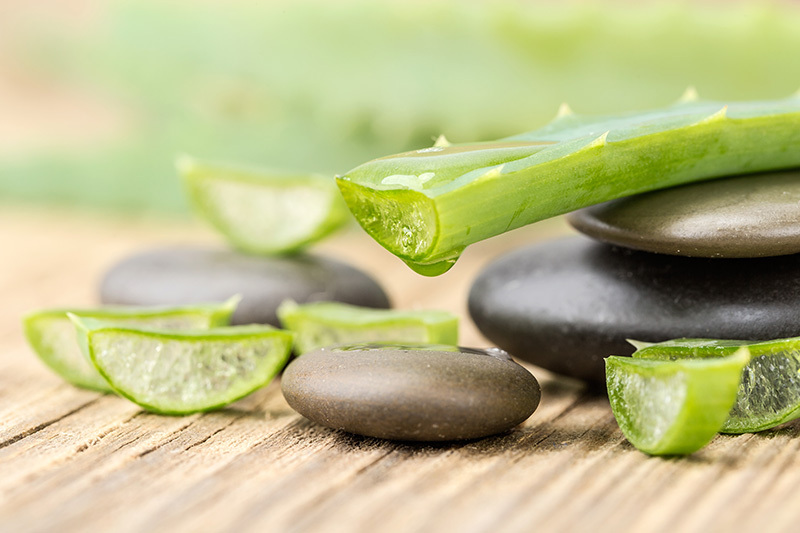Explore the Floral Symbol that Resonates with You
Posted on 02/07/2025
Explore the Floral Symbol that Resonates with You
Flowers are more than just beautiful decorations or thoughtful gifts--they're a universal language of emotions, traditions, and symbolism. Throughout history, different cultures have associated specific floral symbols with traits, life events, and spiritual beliefs. Today, discovering which flower resonates with your essence can offer unparalleled personal insights and even help you communicate feelings that words sometimes cannot.
The Enchanting World of Floral Symbolism
Floral symbolism, also known as floriography, is the art of assigning meaning to flowers. From ancient Egypt to Victorian England, people used flowers to express secret messages, celebrate milestones, or reflect their personalities. Whether you're looking to explore the floral symbol that resonates with you for personal growth, self-expression, or gift-giving, understanding these meanings is both fun and rewarding.
- Historical relevance: Ancient Greeks considered laurel wreaths a sign of victory.
- Spiritual motifs: Lotus flowers represent purity and rebirth in Buddhism and Hinduism.
- Romantic gestures: Red roses convey passionate love, while daisies symbolize innocence.
Why Discover Your Personal Flower Symbol?
Searching for your personal floral symbol is a journey of self-reflection and discovery. Flowers have long served as mirrors to our inner world, embodying the qualities, aspirations, or emotions we cherish. When you identify with a specific flower, it can enhance your personal style, enrich your self-understanding, and deepen your emotional connections.
- Self-identity: Uncover aspects of your personality through flower symbolism.
- Emotional healing: Find comfort or motivation by aligning with your spirit flower.
- Creative inspiration: Incorporate your flower in art, design, or daily affirmations.
- Gift selection: Choose meaningful floral gifts for friends or loved ones.

How to Find the Floral Symbol That Resonates with You
Ready to explore the floral symbol that connects with your spirit? Here are effective ways to discover your ideal flower:
- Reflect on your personality. Ask yourself: Am I adventurous or calm, outgoing or introverted, passionate or reserved? Different flowers represent unique qualities. For example, the bold sunflower radiates positivity, while the gentle lily exudes tranquility.
- Consider your birth month or astrological sign. Each month and zodiac sign has flower associations--April's daisy for innocence or Cancer's white rose for purity.
- Revisit meaningful life experiences. Did a flower feature in a cherished memory or milestone event? Your wedding bouquet, a childhood favorite, or a flower you encountered during a transformative journey could be telling.
- Use intuition and inspiration. Sometimes, a flower just "calls to you." Trust your instincts! What floral form or fragrance captures your imagination?
- Take quizzes for fun. Many online resources offer guided quizzes to help you uncover which flower matches your personality.
Popular Floral Symbols and Their Meanings
To help you explore the floral symbol that resonates with you, here's a detailed guide to some of the most beloved flowers and their rich associations:
Rose - The Emblem of Love and Courage
- Red Rose: Epitome of deep love, desire, and respect.
- White Rose: Purity, innocence, and new beginnings.
- Yellow Rose: Friendship and joy.
- Purple Rose: Enchantment and mystery.
If you are drawn to roses, you may value strong emotions, honesty, and lasting relationships. Roses reflect a classic, passionate essence--a symbol for those who live and love boldly.
Lotus - Purity, Renewal, and Spiritual Awakening
- Buddhist Symbolism: Enlightenment, spiritual growth, and overcoming obstacles.
- Hindu Traditions: Creation and divine beauty.
People who resonate with the lotus are often seekers of wisdom or healing. The lotus's journey from muddy waters to pristine blossom mirrors resilience and transformation.
Sunflower - Joy, Positivity, and Loyalty
- Symbol of: Cheerfulness, hope, and constancy.
- Cultural Associations: Adored in Van Gogh's art for vibrant optimism.
Do you always look on the bright side or inspire others to shine? If so, the sunflower may be your spirit flower--embody it to radiate warmth and raise happiness all around you.
Lily - Tranquility, Renewal, and Grace
- White Lily: Purity, virtue, and remembrance.
- Pink Lily: Prosperity and abundance.
Lilies are often chosen by gentle, compassionate souls. If calm, composure, and inner peace define you, lilies are a natural choice as your floral totem.
Orchid - Mystery, Luxury, and Strength
- Symbol of: Exotic charm, rare beauty, sophistication, and resilience.
Those who feel connected to the orchid may possess hidden strengths, elegance, and a penchant for unique beauty. Orchids are also powerful emblems of endurance and sensuality.
Daisy - Innocence, Purity, and New Beginnings
- Symbolism: Childlike wonder, renewal, fresh starts.
If daisies appeal to you, your outlook is probably optimistic and light-hearted. You embrace each new day with curiosity and openness, making the daisy your ideal symbolic match.
Cherry Blossom - Transience and Renewal
- Japanese Symbolism: Impermanence of life, beauty in fleeting moments.
Cherry blossoms are a favorite among those who cherish change, cherish mindfulness, and see poignancy in life's cycles. They encourage us to live fully in the present.
Peony - Romance, Abundance, and Prosperity
- Chinese Tradition: Luck, wealth, and marital happiness.
Peonies suit those who value deep relationships, tradition, and aesthetic beauty. Their lush petals promise flourishing happiness--both material and emotional.
Floral Symbolism Across Cultures
As you explore the flower symbol that resonates with your soul, understanding cultural perspectives can provide deeper meaning. Here are some globally recognized floral emblems:
- France: Iris symbolizes royalty and valor.
- Japan: Sakura (cherry blossom) stands for both beauty and impermanence.
- Egypt: Lotus signifies rebirth and spiritual purity.
- India: Marigold is a sign of auspiciousness, often used in festivals and weddings.
- Mexico: Marigold (cempasuchil) represents remembrance during the Day of the Dead celebrations.
- United States: The rose is the national flower, symbolizing love and respect.
Personalizing Your Floral Identity
After exploring the rich tapestry of floral meanings, you might wonder: How can I truly personalize my floral symbol? Here are creative ways to celebrate and embody your chosen flower:
- Fashion and Accessories: Wear jewelry, scarves, or hairpieces adorned with your flower.
- Home Decor: Display fresh blooms, potted plants, or floral art in your personal space.
- Creative Expression: Use floral motifs in your paintings, poetry, or digital designs.
- Mindful Practices: Incorporate your flower in meditation, journaling, or affirmations.
- Celebrations: Choose your flower for birthdays, weddings, or memorable occasions, adding symbolic depth to your events.
Matching Flowers to Unique Personality Traits
To further help you explore the floral symbol that matches your soul, let's match flowers with distinctive personality traits. Here's a quick guide:
- Confident and Ambitious: Sunflower, Gladiolus, Bird of Paradise
- Intuitive and Mystical: Lotus, Orchid, Bluebell
- Loyal and Caring: Daisy, Carnation, Peony
- Adventurous and Free-spirited: Wildflower, Poppy, Anemone
- Romantic and Sensitive: Rose, Sweet Pea, Tulip
- Grounded and Practical: Marigold, Chrysanthemum, Violet
*Reflect: Do any of these flowers and their meanings capture your spirit?* Sometimes, you may even find you relate to more than one flower--that's completely normal! Feel free to celebrate your multi-faceted personality with a diverse bouquet.
Modern Trends: Floral Symbols in Art, Fashion, and Lifestyle
Today, floral motifs remain beloved in every facet of culture. From home decor trends to street style and even tattoos, people continuously seek ways to represent their identity with blossoms. As you explore the floral symbol that resonates with you, you may wish to:
- Get a Floral Tattoo: Choose a blossom and design that carries personal meaning and style.
- Blend Flowers in Fashion: Floral prints and accessories let you wear your symbol proudly.
- Incorporate in Branding: Use your flower in business logos or creative passion projects for a unique, meaningful edge.
- Celebrate in Social Media: Share your story and floral inspiration with hashtags (#myspiritflower, #floralidentity).

Frequently Asked Questions About Exploring Your Floral Symbol
How do I know if my chosen flower truly resonates with me?
*Listen to your inner response--does your heart lighten, or do you feel "connected" when you see or smell the flower? Your intuition will usually guide you toward the right choice.*
Can I have more than one personal flower symbol?
Absolutely! Just as personalities evolve and encompass many facets, you can embrace multiple flower symbols, each representing a different aspect of your life journey.
What are the benefits of discovering your floral emblem?
Finding your spirit flower can boost self-awareness, provide emotional comfort, and serve as a source of inspiration or strength in daily life.
How can I use my floral symbol in day-to-day living?
Incorporate your chosen flower through decor, affirmations, gifting, personal style, or even aromatherapy to keep its energy close and meaningful.
Conclusion: Embrace Your Unique Floral Identity
Ready to explore the floral symbol that resonates with you? Whether you are enchanted by the classic red rose, the resilient lotus, the cheerful sunflower, or a rare wildflower, your personal floral symbol is a reflection of your inner world. Understanding and celebrating this connection can enrich your self-expression, ground you in tradition, and add deeper meaning to the rituals and gifts you share. Let the journey inspire you to bloom brightly--just like your favorite flower.
Discover your blossom, honor your story, and let the floral symbol that resonates with your soul guide you toward greater joy, balance, and creativity.
Latest Posts
Unlock the Wonders of Sunflowers You Never Imagined
How to Ensure Your Poinsettias Outlast Expectations
Unearth 7 Facts About Tulips That Will Take You by Surprise





